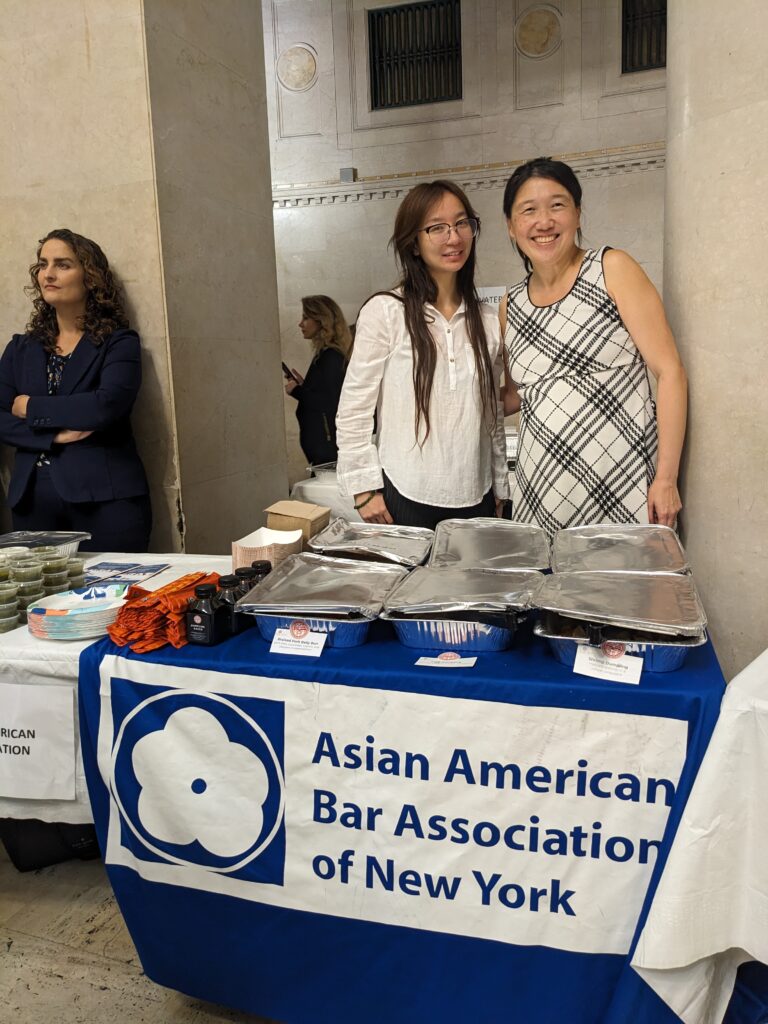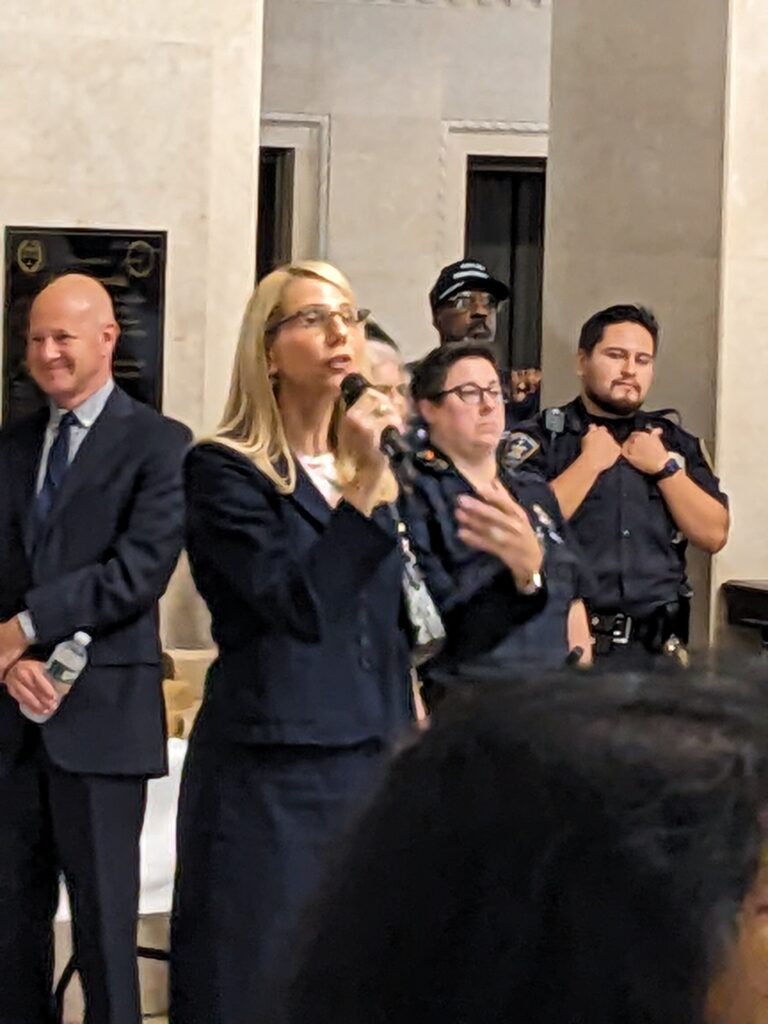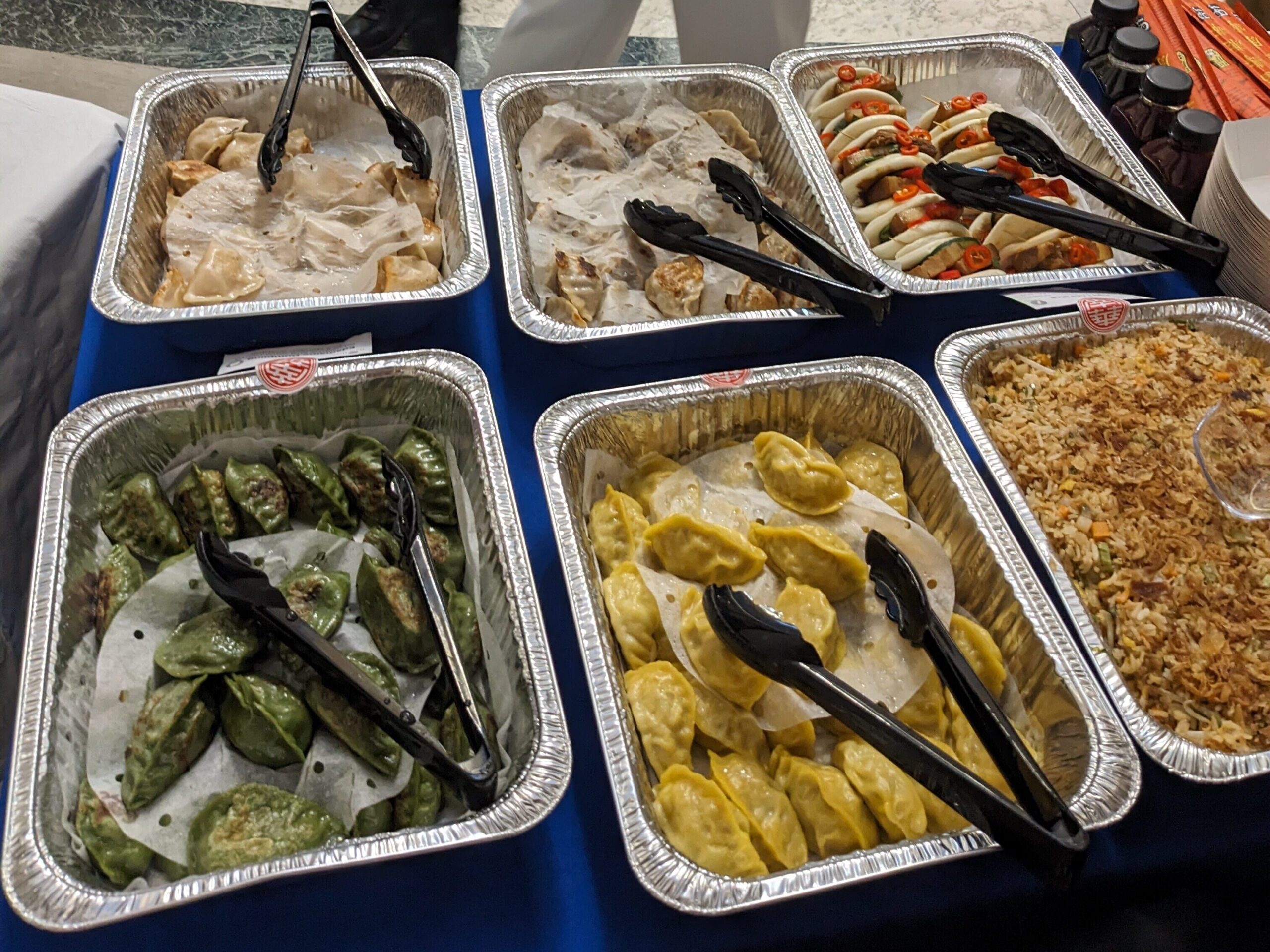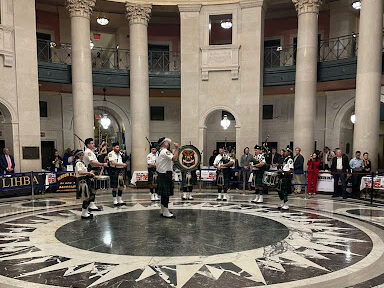On Friday, September 19th, 2025, the New York State Supreme Court hosted the 18th Annual Caren Aronowitz Unity in Diversity Event, co-sponsored by more than 25 bar associations, court committees, and professional organizations. Among the co-sponsors was the Asian American Bar Association of New York, represented by Yang Chen (Executive Director), Carrey Wong (Deputy Executive Director), and Jessie Zhou (Legal Intern).

The event opened with a majestic performance by the New York State Courts Pipes and Drums, dressed in full Scottish attire. Their music, solemn yet celebratory, created an atmosphere of reverence and set the stage for a program honoring both tradition and community.


Hon. Suzanne J. Adams (Administrative Judge of the New York County Supreme Court Civil Term) offered welcome remarks, affirming the court’s commitment to diversity and inclusion. Then, she introduced Ukrainian singer Valeriia Kuzmuk, who moved the audience with her renditions of traditional and contemporary Ukrainian songs.

The program then continued with a dedication by Hon. Deborah A. Kaplan (Justice of the New York County Supreme Court), who reflected on the legacy of the late Caren Aronowitz. Known for her tireless dedication to cultural programming at the courthouse, Aronowitz was remembered as a beloved colleague whose vision continues to inspire annual celebrations of unity. Special recognition was given to Simone Abrams and Yesenia Herrera (members of the New York County Clerk’s Office) for their efforts in planning the program.
The event concluded with closing remarks by Hon. Adam Silvera (Deputy Chief Administrative Judge of the New York City Courts). Justice Silvera highlighted the importance of building unity through diversity, reminding all attendees that the legal profession is strengthened when it embraces every community it serves.
Following the program, attendees were invited to enjoy a reception featuring a wide variety of dishes contributed by all co-sponsoring associations and committees. From savory entreés to sweet desserts, the tables offered a vibrant display of cuisines that showcased the rich cultural traditions across many diverse communities. AABANY’s spread was a true highlight—an array of of pork, shrimp, chicken, and edamame dumplings; pillowy pork and duck buns; egg fried rice; savory noodles; and Chinese greens. The aromas filled the room, drawing attendees to the tables again and again.

As the event drew to a close, the Unity in Diversity program once again achieved its purpose — to celebrate the richness of difference, to honor those who paved the way, and to strengthen the bonds of communities.
We thank the Gender Fairness Committee, Supreme Court, Civil Term, New York County, the New York County Supreme Court, Civil Term Equal Justice in the Courts Committee and the Cultural Diversity Sub Committee, and the New York County Clerk’s Office for their organization and continued commitment to inclusion and diversity. We thank all co-sponsoring associations, committees, and societies for their dedication and generosity in tabling, and we honor the memory of Caren Aronowitz, whose vision continues to unite the court and community year after year.





